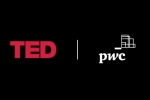Social and behavioural change
Social and behavioural change is occurring at a faster pace than at any time in history.
Consumers are more informed and empowered than ever before and -- because digital technology lets consumers compare value and expand their choices -- old notions of value and loyalty are breaking down.
The most significant trend is urbanisation, particularly in emerging markets. This is creating urban middle class consumers, who will not only need access to financial services, but who will demand a higher level of service, using non-traditional criteria for success, than many financial institutions realise.


Facts
Over the next 30 years, about 1.8 billion people are expected to move into cities -- most of them in Asia and Africa -- increasing the urban population to 5.6 billion.
As incomes in Asia and Africa increase, the global middle class (daily expenditure of US$10-100 in purchasing power parity terms) will more than double to reach some five billion people by 2040.
So what does this mean for your business?
How your company responds to these social and behavioural changes could define your market position for decades to come, providing a decisive opportunity to put clear distance between you and your rivals if you judge the implications correctly, and a mortal threat if you don’t.
There are several key opportunities in financial services including:
- Building the financial system
-Macro/micro regulation and enforcement
-Consumer protection
-Capital markets
- Establishing an international financial centre
-IFC strategy
-Legislative agenda
- Financial inclusion: banking to the unbanked
-Partnership banking models
-Mobile banking
- SME banking
-Partnership banking models
-Mobile banking
- Infrastructure financing
-Public Private Partnerships
-Sovereign wealth funds
















